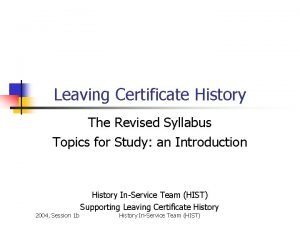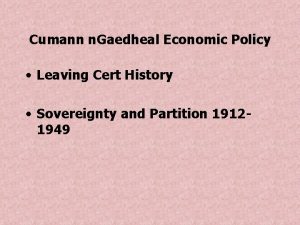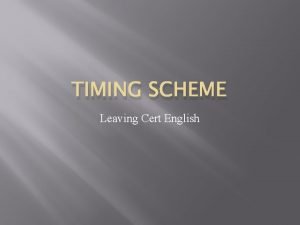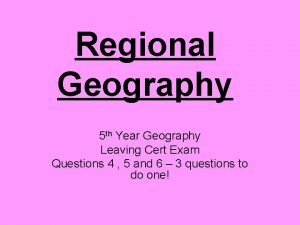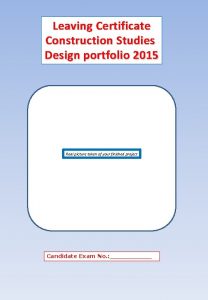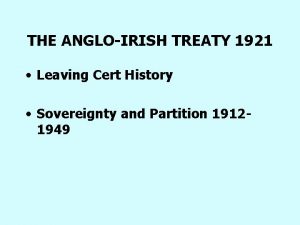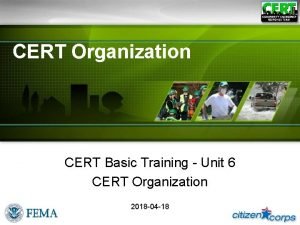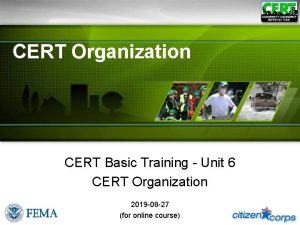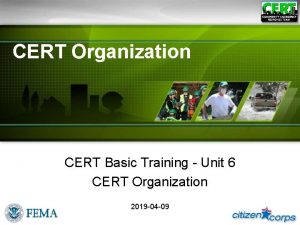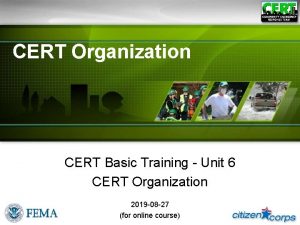War of Independence 1919 1921 Leaving Cert History








- Slides: 8

War of Independence 1919 -1921 • Leaving Cert History • Sovereignty and Partition 19121949

War of Independence 1919 -1921 • The First Dáil • The War 1919 - 1921 • Major incidents • Peace

The First Dáil • Sinn Fein were abstentionist (would not take seats in House of Commons). • Sinn Fein invited all Irish MP’s to attend a new assembly in Dublin. • No other party attended. • Only 27 Sinn Fein candidates attended the assembly on 19/1/1919. Most of the rest were still in prison over German Plot. • Sinn Féin set about gaining as much control as possible over the country. • They set up Sinn Féin courts to try people for crimes and encouraged the public to come to these courts rather than the official British ones. • Collins organised a loan for the work of the government.

The War 1919 - 1921 • The first fighting was at Soloheadbeg, Tipperary, on 19/1/1919 when an RIC patrol was ambushed by an IRA. The policemen were guarding a supply of explosives • The IRA used guerrilla tactics against the British forces. These were ambush or “hit and run” tactics • Michael Collins organised an intelligence network, using spies to collect information. • He organised a special group in Dublin called the “Squad”. Their job was to kill spies, informers and detectives • As the IRA grew it was organised into “flying columns” – mobile units that were able to move around the countryside, getting food and shelter from local people

The War 1919 - 1921 • The British government recruited ex-soldiers the “Black and Tans” • They had a bad reputation in Ireland • The government also recruited ex-officers – the “Auxiliaries” • They often used reprisals for guerrilla attacks by burning houses, barns and creameries and attacking innocent people • The British government also passed the “Government of Ireland Act” in 1920 – set up two parliaments – one in Dublin - one in Belfast

Major incidents • Members of the RIC murdered Tomás Mac. Curtain, Lord Mayor of Cork, in front of his family on 20/3/1920. • Terence Mac. Swiney, the next Lord Mayor of Cork, was arrested and died on hunger strike on 25/10/1920 • On “Bloody Sunday”, 21/11/1920, Collins’ “Squad” killed 11 British agents in Dublin • Later the same day, in retaliation, the Black and Tans broke into a GAA match at Croke Park and killed 14 people, including one player, Michael Hogan • That evening 3 IRA prisoners were shot by the British

Major incidents • After an ambush at Crossbarry Co. Cork, on 11/12/1920 the Black and Tans burned down the centre of Cork City. • The IRA attacked the Custom House on 25/5/1921 and some of it was burned down. • This attack was suggested by de Valera to counter accusations of the IRA’s tactics being simply murder • The attack led to the capture or death of 80 IRA men

Peace • By 1921 both sides wanted peace for the following reasons: (a) the IRA was running short of men and ammunition, (b) the people wanted peace, (c) the British government was being criticised at home and in the USA for the behaviour of the Black and Tans and Auxiliaries, (d) the war was costing the British government a lot of money. • Both sides agreed to a truce in July 1921.
